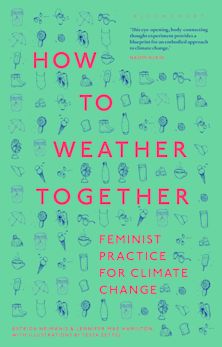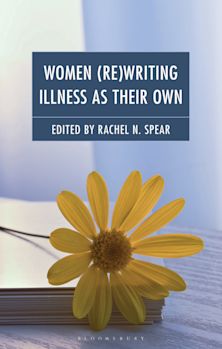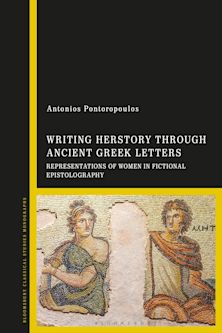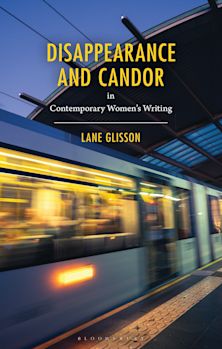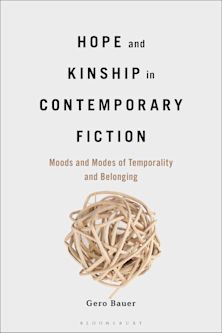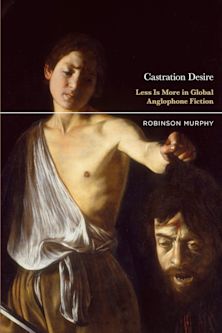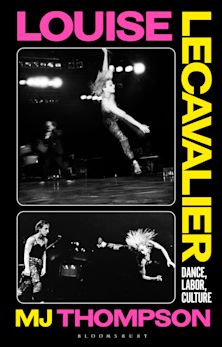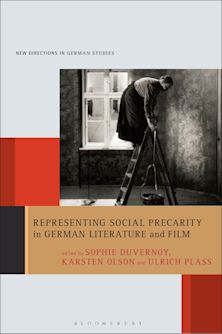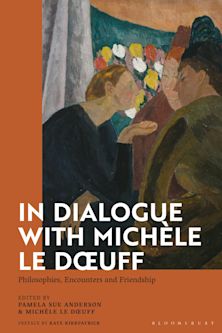- Home
- ACADEMIC
- Literary Studies
- Gender and Sexuality in Literature
- The New Utopian Politics of Ursula K. Le Guin's The Dispossessed
The New Utopian Politics of Ursula K. Le Guin's The Dispossessed
Laurence Davis (Anthology Editor) , Peter Stillman (Anthology Editor) , Tony Burns (Contributor) , Claire Curtis (Contributor) , Laurence Davis (Contributor) , Winter Elliot (Contributor) , Chris Ferns (Contributor) , Everett Hamner (Contributor) , Ursula K. Le Guin (Contributor) , Avery Plaw (Contributor) , Andrew Reynolds (Contributor) , Ellen Rigsby (Contributor) , Jennifer Rodgers (Contributor) , Dan Sabia (Contributor) , Bülent Somay (Contributor) , Douglas Spencer (Contributor) , Simon Stow (Contributor) , Mark Tunick (Contributor)
The New Utopian Politics of Ursula K. Le Guin's The Dispossessed
Laurence Davis (Anthology Editor) , Peter Stillman (Anthology Editor) , Tony Burns (Contributor) , Claire Curtis (Contributor) , Laurence Davis (Contributor) , Winter Elliot (Contributor) , Chris Ferns (Contributor) , Everett Hamner (Contributor) , Ursula K. Le Guin (Contributor) , Avery Plaw (Contributor) , Andrew Reynolds (Contributor) , Ellen Rigsby (Contributor) , Jennifer Rodgers (Contributor) , Dan Sabia (Contributor) , Bülent Somay (Contributor) , Douglas Spencer (Contributor) , Simon Stow (Contributor) , Mark Tunick (Contributor)
This product is usually dispatched within 3 days
- Delivery and returns info
-
Free CA delivery on orders $40 or over
You must sign in to add this item to your wishlist. Please sign in or create an account
Description
The Dispossessed has been described by political thinker Andre Gorz as 'The most striking description I know of the seductions-and snares-of self-managed communist or, in other words, anarchist society.' To date, however, the radical social, cultural, and political ramifications of Le Guin's multiple award-winning novel remain woefully under explored. Editors Laurence Davis and Peter Stillman right this state of affairs in the first ever collection of original essays devoted to Le Guin's novel. Among the topics covered in this wide-ranging, international and interdisciplinary collection are the anarchist, ecological, post-consumerist, temporal, revolutionary, and open-ended utopian politics of The Dispossessed. The book concludes with an essay by Le Guin written specially for this volume, in which she reassesses the novel in light of the development of her own thinking over the past 30 years.
Table of Contents
Part 2 Open-ended Utopian Politics
Chapter 3 The Dynamic and Revolutionary Utopia of Ursula K. Le Guin
Chapter 4 Worlds Apart: Ursula K. Le Guin and the Possibility of Method
Part 5 Post-Consumerist Politics
Chapter 6 The Dispossessed as Ecological Political Theory
Chapter 7 Ursula K. Le Guin, Herbert Marcuse, and the Fate of Utopia in the Postmodern
Chapter 8 The Alien Comes Home: Getting Past the Twin Planets of Possession and Austerity in Le Guin's The Dispossessed
Part 9 Anarchist Politics
Chapter 10 Individual and Community in Le Guin's The Dispossessed
Chapter 11 The Need for Walls: Privacy, Community, and Freedom in The Dispossessed
Chapter 12 Breaching Invisible Walls: Individual Anarchy in The Dispossessed
Part 13 Temporal Politics
Chapter 14 Time and the Measure of the Political Animal
Chapter 15 Fulfillment as a Function of Time, or the Ambiguous Process of Utopia
Chapter 16 Science and Politics in The Dispossessed: Le Guin and the "Science Wars"
Part 17 Revolutionary Politics
Chapter 18 The Gap in the Wall: Partnership, Physics, and Politics in The Dispossessed
Chapter 19 From Ambiguity to Self-Reflexivity: Revolutionizing Fantasy Space
Chapter 20 Future Conditional or Future Perfect? The Dispossessed and Permanent Revolution
Part 21 Open-ended Utopian Politics
Chapter 22 Ambiguous Choices: Skepticism as a Grounding for Utopia
Chapter 23 Empty Hands: Communication, Pluralism and Community in Ursula K. Le Guin's The Dispossessed
Part 24 A Response, by Ansible, from Tau Ceti
Part 25 Further Reading
Product details
| Published | Oct 19 2005 |
|---|---|
| Format | Paperback |
| Edition | 1st |
| Extent | 352 |
| ISBN | 9780739110867 |
| Imprint | Lexington Books |
| Dimensions | 223 x 193 mm |
| Publisher | Bloomsbury Publishing |
About the contributors
Reviews
-
Ursula K. Le Guin's The Dispossessed is one of the most significant utopian novels in this long tradition of imaginative socio-political thought experiments. In this collection, Davis and Stillman have given us a “sustained and comprehensive” re-examination of this “ambiguous utopia” by way of sixteen astute and original essays. This is a welcome, timely, and important collection.
Tom Moylan, Glucksman Professor of Contemporary Writing and Director, Ralahine Centre for Utopian Studies, University of Limerick
-
Like Le Guin's open-ended ambiguous utopia, these sixteen essays will reveal their resonance only as we reread them. Together they comprise a rich, and a valuable, and a persistently stimulating fresh contribution to the ongoing and open-ended appreciation of The Dispossessed.
James Bittner, Author of Approaches to the Fiction of Ursula K. Le Guin
-
For three decades Le Guin's The Dispossessed has inspired debates about competing ideologies, about notions of gender, about space-time continuums, about forms of utopian expression-indeed about topics as broad as human communication and as intensely personal as the emotional epiphanies of the novel's hero Shevek. So, to say that this lively first collection of essays about the book is welcome and long overdue is to make a grand understatement. Like Le Guin's novel the collection is wide-ranging, open-ended, and provocative. It offers analyses of expected topics and images-anarchism, ecology, and walls, for instance- from multiple viewpoints, as well as discussions of important less-expected issues, notably consumerism. Contributors examine rich networks of connections and parallels between Le Guin's thought and art and the works of Lao Tzu, Kropotkin, Paul Goodman, Marcuse, Hegel, Hannah Arendt, and French and Italian architects and designers. Le Guin's essay, which concludes the collection, is afrank and feisty response to critics who reduce her novel to treatise status, and a complex advocacy of art that teaches. This fine collection will invigorate discussion of The Dispossessed and of Le Guin's other works, especially Always Coming
Kenneth M. Roemer, Author of The Obsolete Necessity, Build Your Own Utopia, America as Utopia, and Utopian Audiences
-
I was delighted to find that these essays deepened and expanded my appreciation of both work and author. If you've read The Dispossessed . . . by all means read this as well.
Sfrevu
-
Those interested in the history of both utopian and anarchist thought will gain a great deal from the sophisticated analyses on offer. This is particularly so given the diversity of the perspectives brought to bear on the novel....What the volume offers is an exceptional range of essays exploring the radical political theory of the The Dispossessed.
Political Studies Review
-
For three decades Le Guin's The Dispossessed has inspired debates about competing ideologies, about notions of gender, about space-time continuums, about forms of utopian expression-indeed about topics as broad as human communication and as intensely personal as the emotional epiphanies of the novel's hero Shevek. So, to say that this lively first collection of essays about the book is welcome and long overdue is to make a grand understatement. Like Le Guin's novel the collection is wide-ranging, open-ended, and provocative. It offers analyses of expected topics and images-anarchism, ecology, and walls, for instance- from multiple viewpoints, as well as discussions of important less-expected issues, notably consumerism. Contributors examine rich networks of connections and parallels between Le Guin's thought and art and the works of Lao Tzu, Kropotkin, Paul Goodman, Marcuse, Hegel, Hannah Arendt, and French and Italian architects and designers. Le Guin's essay, which concludes the collection, is a frank and feisty response to critics who reduce her novel to treatise status, and a complex advocacy of art that teaches. This fine collection will invigorate discussion of The Dispossessed and of Le Guin's other works, especially Always Coming Home, and engage any serious reader of utopian and science fiction and political and social theory.
Kenneth M. Roemer, Author of The Obsolete Necessity, Build Your Own Utopia, America as Utopia, and Utopian Audiences













